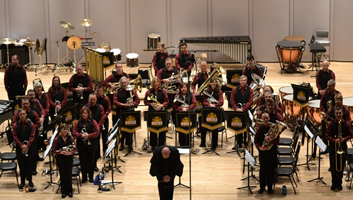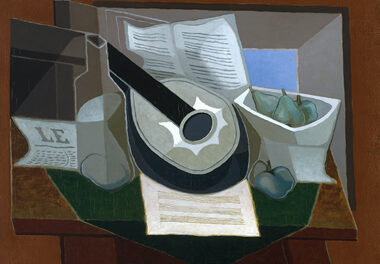On the afternoon of November 18, in Fletcher Opera Theater, the Canadian-born heroic tenor Ben Heppner wrapped up the first season of the NC Symphony’s Great Artists Series, presented with the help and support of the A.J. Fletcher Foundation. It’s been a fairly good inaugural year for the series, which has offered some truly great artists and some artists who seem destined to achieve greatness. Heppner is still young, so perhaps he belongs in the latter category, although the dearth of great Wagner singers has thrust greatness – or what passes for it, nowadays – onto him already, in some quarters. His appearance here was in any event eagerly awaited by vocal connoisseurs, and his program, which consisted of music by Beethoven, Liszt, Strauss and Rachmaninoff, followed by a batch of time-honored (or perhaps shopworn) parlor songs, held considerable promise.
The concert began with an announcement by NCS President and CEO David Chambless Worters, who informed the audience that there had been a change in accompanists; due to the illness of Craig Rutenberg, Ted Taylor had been pressed into service. He played admirably, controlling his dynamics even though the piano lid was fully open, and he provided considerable warmth and emotion, as well as some dazzling keyboard wizardry, in the numbers that involved solo introductions, interludes or postludes. We’d welcome the chance to hear him again at some point.
Reports from elsewhere have chronicled some of Heppner’s vocal problems in the recent past, so those who keep up with such things were doubtless hoping that all would go well in Raleigh, but it was not to be. Instead, it was clear from the outset that Heppner was in some distress. This might have stemmed from inadequate warming up in Beethoven’s “Adelaide,” but in the ensuing Liszt group his difficulties were readily apparent to all. The songs–Three Petrarch Sonatas–require exceptional control, and the voice simply didn’t cooperate on this occasion. The deliveries were rendered at mezzo-forte and above, even in sections that demanded delicacy, and the singer’s discomfort was at times as painful for some members of his audience as it must have been to him, personally. A water-break between the second and third songs did not bring lasting relief. As a result, Heppner abbreviated the program, omitting Strauss’ Op. 27 songs – a major loss, given the singer’s special affinity for German literature – and went directly into a fairly short group of Rachmaninoff songs. His problems continued in these, leading him to trim and alter here and there. This was particularly evident in the third number (“It wasn’t long ago, my friend”) and the concluding one (“What happiness”), where he dropped each finale an octave, thus robbing both songs of their magical effects. It may be worth noting that the tenor used a wordbook for the Liszt and the Rachmaninoff songs and had plenty of light on stage to read from it. The audience was not so fortunate–although texts and translations (in very small print) were provided with the programs, the management of the hall has not yet figured out how to set the lights in the balcony, so patrons there were left in the dark and therefore clueless. Someone should take the time to teach the technicians how make these adjustments. It cannot be all that hard, unless of course the dimmer switches were omitted to cut costs.
After the intermission, Heppner returned (bravely, some thought) to conclude his program with five parlor songs – familiar tunes by Ernest Charles, Teresa del Riego, Noel Coward and Nicholas Brodszky (whose “Be my Love” was made famous by Mario Lanza). Ironically, Heppner sang most of these things–none of which demands much of an experienced artist–better than his offerings in the abbreviated first half, so he drew considerable applause and a few cheers that must have gladdened his heart. Perhaps his post-intermission announcement that he will return did the trick. He’s certainly a fine singer, and his personality is engaging, so it’s a shame that he was having probs during this program. Those probs, we learned during the intermission, may have stemmed in part from his having given a masterclass the previous day–and from the last-minute change in accompanists, which apparently obliged him to go over his entire program less than 24 hours before his recital. (That he lives dangerously in other respects was apparent, too, when he placed a glass of water inside the piano, during the short second half.) Heppner owes his Triangle public a return visit when he’s in better form.
His French CD was on sale in the lobby – for $20. Heppner’s recordings provide evidence of mastery that was, alas, in short supply during his Raleigh recital.












